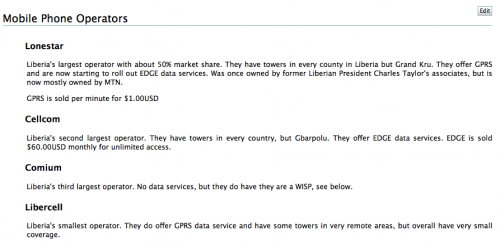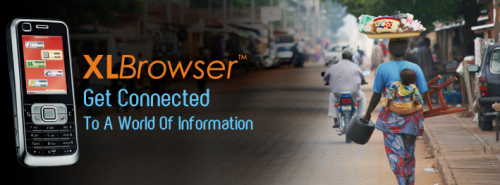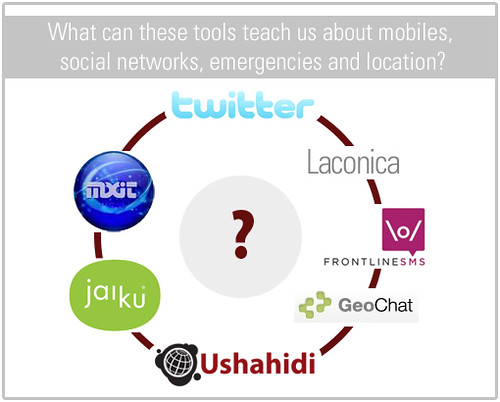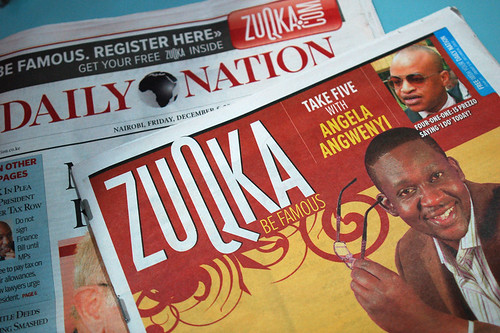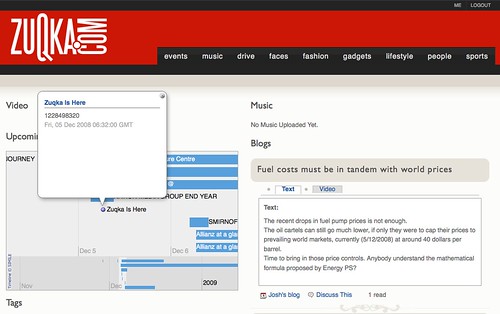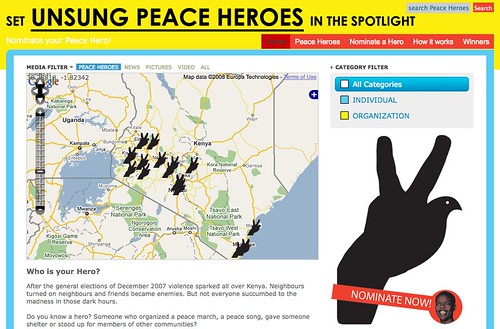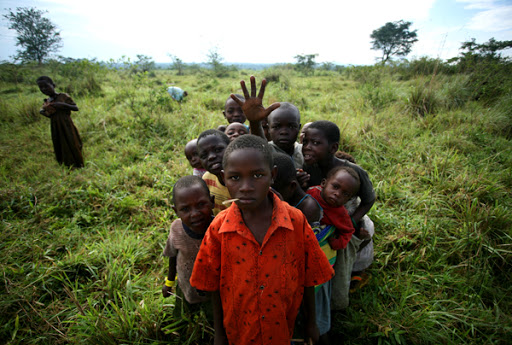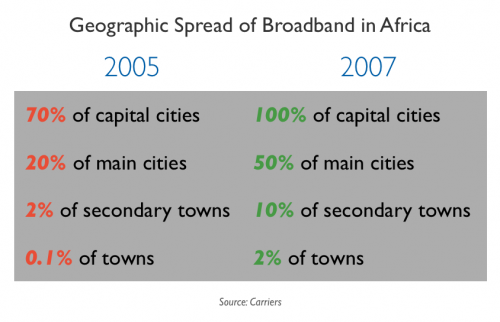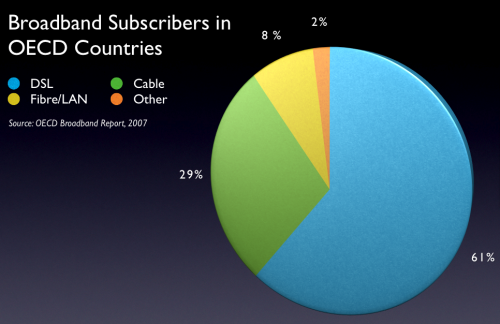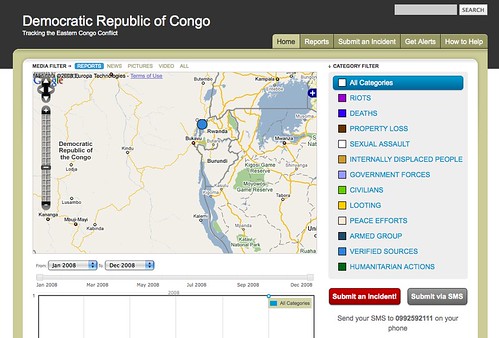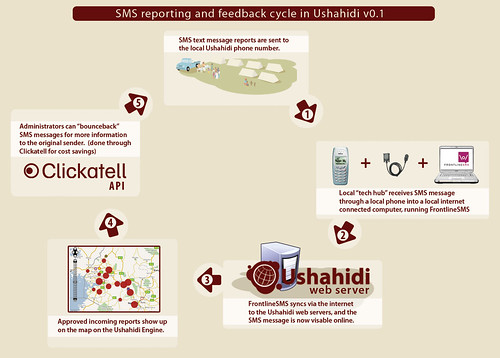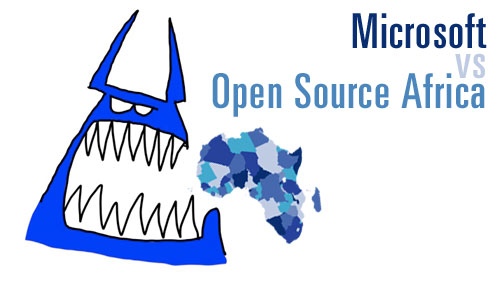
Last week the BBC interviewed Dr. Diarra, the chairman of Microsoft in Africa. One of his quotes was memorable:
“Africa is really the last frontier in not only developing technology that is specific to people’s needs, but eventually even developing new business models that will enable the emergence of local software industries, such as young people who have the skills to be able to write their own applications for their own community,â€
I agree with the first part of that statement, it’s the second part that I find alarming. Coming from Microsoft, how can young people build the skills to write code when they can’t even pay for the closed software needed to run it? It’s not free, and if access (which he states earlier) is the biggest issue facing African technologists – then how does closed software fit into the equation?
Let’s say that the developer communities do emerge even with that hurdle, we’re still left with what one person wrote: “…they will be formed from programmers who are completely dependent on American software for the livelihood: it’s neo-colonialism, pure and simple.” At it’s worst then, African governments are paying for Western products, and are dependent on these large organizations to maintain and support critical systems.
Netzpolitik writes an interesting piece, pointing to a recent WSJ article and talking about how Microsoft positions itself within education and government circles in Africa, thereby cutting off major revenue sources for open source developers and organizations that originate from within the continent.
“Of course, Microsoft does not come for free – the hidden price tag is not just attached to the licensing costs but also to the ownership of innovation and data. Microsoft should be supporting local developments instead of stifling them and dealing with them as competition.”
Monetary and Knowledge Costs
There really are two costs when dealing with software: the expense of buying and maintaining it, and the knowledge cost within the local programming community. The monetary side is a short-term cost relative to the knowledge costs (core competency) that a nation does, or does not, develop over time.
In Africa organizations have a lot of hurdles to overcome, not least of which is the straight cost of doing business. Where it might be simple for some organizations in the US and Europe to wave off a couple thousand dollars worth of licensing fees, the same is not true in Africa. The margins are lower, so every cent counts.
In a region where cost is so important, it’s amazing then that the most lucrative deals go to the Western organizations that have high costs for ownership and maintenance. These outside organizations use backdoor methods to gain contracts where in-country options are available, usually with less expense and with greater local support.
The bigger problem is the knowledge costs, or lack thereof, when closed source organizations muscle into the most lucrative fields. What the country ends up doing is stifling its own programming community. Without money trickling back into that community, its growth is stunted. Instead of young developers learning the fundamentals of coding in open code, they end up going to work in an office that runs proprietary systems.
Ushahidi and Vine
The last year has taught me a great deal about working in the open source space. Not just in developing a tool using these principles, but in helping create a non-profit technology organization focused on open these same fundamentals. That is, we believe that the best use and furtherance of our technology, and our organizations goals, is done with and by the greater community that grows around it. We serve as a focal point from which this community gains energy and to act as a group which is dedicated to the core framework of the tool itself.
Do all situations need and/or require open software? No. In some cases closed-source options are just plain better, which is why I have no problem buying great apps for my PC, Mac or iPhone that make my life easier. I don’t believe that all technology has to be open, though I do think that by keeping it completely closed most companies will be bypassed by their open counterparts in the long run. Good examples of this are the Firefox browser and WordPress blogging platform – possibly Android.
A couple of weeks ago Microsoft announced their new Vine product. It has a lot in common with Ushahidi, including sending and receiving of alerts via SMS and email. To be honest, we have no ownership of this idea, but what we do have is a question as to why Microsoft believes and works to create crisis and emergency systems in a closed way.
Some thoughts from other bloggers on this same issue:
“Crisis reporting is something that wants to be free. It needs to be free, community owned, a service that just exists.”
“There is nothing in Vine that you cannot already do with a combination of Ushahidi’s proximity alerts and the path-breaking SMS based forms updates from FrontlineSMS. Having met with the best and brightest of Microsoft Research, key members of the team behind Vine and the team behind the new version of Sharepoint and Groove, Microsoft have nothing that comes close to the capabilities of FrontlineSMS today with regards to forms based data transfers over SMS in austere conditions, which is precisely what is needed for decision support mechanisms and alerting post-crises.”
“The ownership of a crisis reporting system by one company seems unattractive from a consumer as well as a security perspective. It is not unlikely that this will become yet another failed attempt to override instead of collaborate with existing local solutions.”
Unless Microsoft is creating something truly revolutionary, which I don’t see that it is in Vine, then I would rather see them put their development muscle behind something that actually is. It doesn’t even have to be Ushahidi. Finally, if they really are about creating emergency and disaster software for use by normal people, then I would encourage them to not charge for it and to make it as open as possible for others to work with it, including Ushahidi.
[Sidenote: Interestingly enough, the first pre-beta smartphone app that was finished for Ushahidi was the Windows Mobile version. We all chuckled, and then gave a quick dig to the ribs of the devs doing the Android and J2ME apps, to get them going. To us, it didn’t matter that it was the service created for our friendly closed-source giant finished first. In the realm that we find ourselves in, crowdsourcing crisis information, it doesn’t matter what device you use – it just needs to work.]
(Blue Monster image by Hugh MacLeod)


